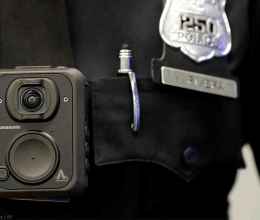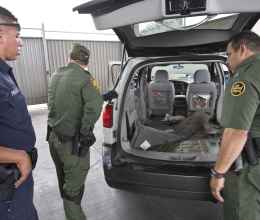
Landmark Ruling Forces ICE to Allow Detainees Access to Confidential Phone Meetings
LOS ANGELES — A federal court today ruled that U.S. Immigration and Customs Enforcement (ICE) officials must revise their COVID-19 policies at the Adelanto ICE Processing Center to allow confidential conversations between detainees and attorneys. Their policies had made it nearly impossible for detainees and attorneys to confer in private, whether in person or by telephone.
The ruling by Judge Jesus G. Bernal said that Adelanto officials — including those of the private GEO Group Inc. that operate the center — “must allow free, reasonably private legal calls on unrecorded and unmonitored telephone lines, and must devise a reliable procedure for attorneys as well as detainees to schedule those calls within 24 hours of a request.”
The ruling came as result of a temporary restraining order request filed on March 26 by the American Civil Liberties Union Foundation of Southern California, the Immigrants’ Rights Clinic at Stanford Law School, and the law firm Sidley Austin LLP.
“Today the court recognized that ICE and GEO cannot simply shut off visitation for immigration detainees without opening other avenues of communication with the outside world,” said Eva Bitrán, staff attorney at the ACLU SoCal. “This order will protect detained immigrants’ constitutional right to speak with their lawyers—enabling them to fight deportation and regain their freedom.”
Telephone access — often detainees' main conduit to the outside world — had been severely restricted in Adelanto. The conversations in the facility were not only non-confidential, but also so expensive to the point that many detainees had no opportunity to use them for effective consultations. To make matters worse, the phone system didn’t allow detainees to leave recorded messages or navigate an automated menu to reach a live individual — it cut them off if a call was not answered by a live person.
The judge’s order today said, among other rulings, that the phone calls must be provided at no cost to detainees. And leaving messages must be allowed. The judge also called for the establishment of methods for exchanging private, legal documents.


